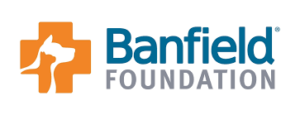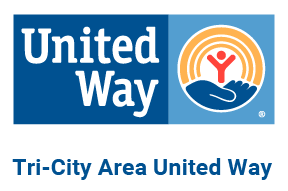
Thanks to a generous donation from Banfield Foundation, Rainbow House is able to assist qualifying survivors with veterinary care for their companion animals. You do not have to be a resident of Rainbow House to qualify. Outreach clients receiving services are eligible to apply as well.
The Safer Together Initiative
Research suggests up to 89 percent of pet-owning domestic violence victims report their abuser has either threatened, injured or killed the family pet1. As many as 48 percent of victims remain in an abusive relationship because they fear for the safety of their pet2. However, with a mere estimated six to ten percent of domestic violence shelters allowing animals onsite (Rainbow House has an onsite kennel!), the need to create and grow support for pet-friendly programs feels both critical and urgent to protect the human-animal bond and ultimately, save lives.
“Through our work and the work of other outstanding organizations, we hope to create a world where victims never have to choose between their own safety and the safety of their loved ones, including their pets. Victims often remain in a dangerous environment because they do not have access to a pet-friendly shelter or program, and we believe saving the life of a pet can save the life of a human,” said Kim Van Syoc, Executive Director, Banfield Foundation. “Pets play an essential role in families, particularly during crises, and that includes domestic violence. Keeping pets safe and healthy helps ensure they remain a vital part of their family support system, which we believe will lead to better outcomes for both people and pets.”
The foundation’s new Safer Together grant program enables qualifying nonprofit organizations, such as the Rainbow House, to apply for funding as they increase their capacity to help people and pets escaping domestic violence. Rainbow House’s grant funding will largely focus on ensuring pets have access to preventive and emergency veterinary care.
“Veterinary care is essential to providing comprehensive services to human and animal victims of domestic violence. Because domestic violence is about power and control, many victims are prevented from seeking veterinary care for their pets by their abuser,” said Myra Rasnick, Executive Director of Ahimsa House, the first and only domestic violence foster program in Georgia. “Approximately 95 percent of pets entering our program require some form of veterinary care whether preventive or emergency to treat injury or illness due to abuse and neglect. Veterinarians play a crucial role in not only treating these pets, but also recognizing the signs of animal cruelty. Making the connection between animal cruelty and domestic violence makes veterinarians a lifeline for victims of domestic violence, providing earlier intervention that can help save both animal and human lives.”



